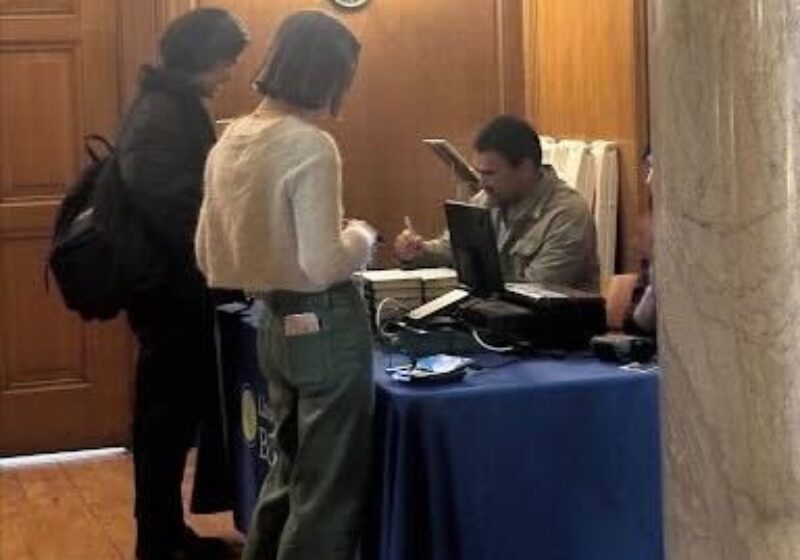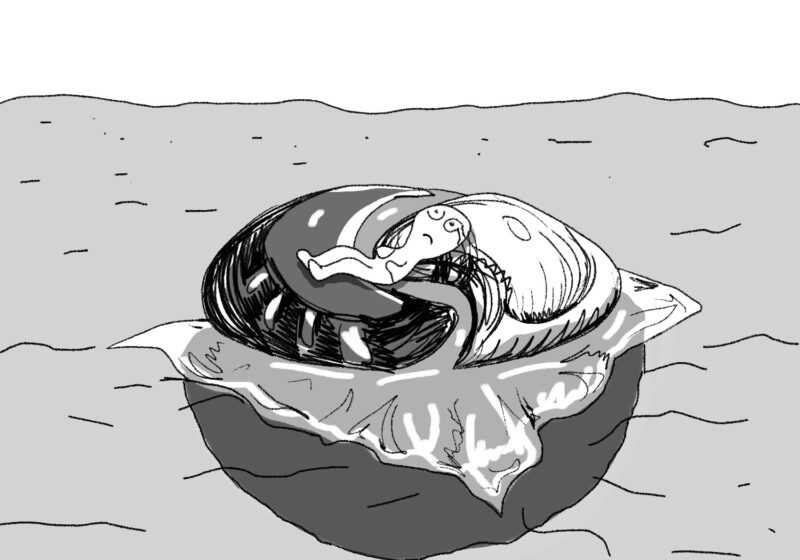A group of about 10 students has formed a coalition to unionize contingent faculty—adjunct and non–tenure track professors, who do not receive the same benefits as their tenured peers.
The goal of the group, Students Supporting Adjuncts, is to talk to all contingent faculty members, listen to their concerns, and help solve their problems. Additionally, these students seek to bring respect to contingent faculty, whose needs they feel are not being taken seriously by the University.
“After having a number of conversations with contingent professors and doing research about the national movements of adjuncts organizing, we slowly came to the conclusion that a union was the best way to go about things,” senior Miles Meth, who is heavily involved with the movement at UR, said.
Sophomore Rachel Casper, also involved with Students Supporting Adjuncts, believes their group is giving contingent faculty a voice they never had.
“Through this outreach, we began collecting union cards and discussing what these professors feel they need—a voice at UR, along with much else,” she said.
While Students Supporting Adjuncts has been working on this issue since last fall, contingent faculty hadn’t gathered momentum for their movement until this semester.
“Their excitement and motivation is amazing,” Casper added. “Our professors do so much for us as students and for the UR community. It’s time they’re treated with the dignity they deserve.”
Professors not on the tenure track are not denied it upon being hired, but are hired with no possibility of being offered it at all. According to Meth, the national proportion of tenured faculty to adjuncts is three to seven—the opposite of what it was 50 years ago, due to the increasing corporatization of higher education. While that proportion is not as high at UR, Students Supporting Adjuncts believes that the University can do better.
“The shift is a response to try to lower short term costs with under-paid, over-worked laborers who don’t have the power to bargain for better conditions,” Meth explained. “The union is a way to change that reality.”
Director of the University of Rochester Percussion Ensemble Matthew Witten is all too familiar with such conditions and thinks the student movement “is amazing, supportive, and heroic.”
Witten has taught as an adjunct at seven different institutions, including four at which he currently teaches.
“You could say I am quite familiar with what adjunct status means,” he said in an email. He no longer teaches at several of these schools because of a “lack of work.”
“I spend eight hours a week in the car commuting to various schools, I spend money on tolls, and, at least once a week, I am filling my tank,” he said. “I barely have time to complete my work, like preparing for classes and grading, and I am barely able to scrape by with my bills. Luckily, I make little enough to qualify for Medicaid—thank you Obamacare!”
Nevertheless, professors on the tenure track have conveyed their support for their colleagues in the form of a signed letter that will be circulating in the near future.
Also circulating is a petition formally requesting President Seligman to support contingent faculty at UR. The petition has received approximately 800 signatures, digitally and in print. According to Casper, University administration has been asked by the student group to remain neutral in the contingent faculty’s decision to form a union so that they do not feel intimidated, regardless of how they decide.
The group plans to give the petition to University President Joel Seligman later this week.
Adjunct Digital Media Studies professor Robert Kostin also hopes that University administration remain neutral.
“I know the stories about people being fearful of ‘the man,’ but here at the University of Rochester, I’m hopeful that administration will be neutral while the contingent faculty makes up its mind about unionization,” he said. “I believe my tenured and tenure-track colleagues and the senior leadership in our University are genuinely good people who have the same values I do about higher education, and that they see the value of a contingent faculty team that’s given the chance to dedicate themselves to our students.”
Seligman’s acknowledged the movement by saying, “I am aware of the Change.org petition. If there is enough support to hold a union election, I support each relevant faculty member’s right to make this important decision.”
President Seligman said that as of now it is hard to determine whether an election will actually take place, but that the Provost’s Office is working to help faculty acquire information they might find valuable.


